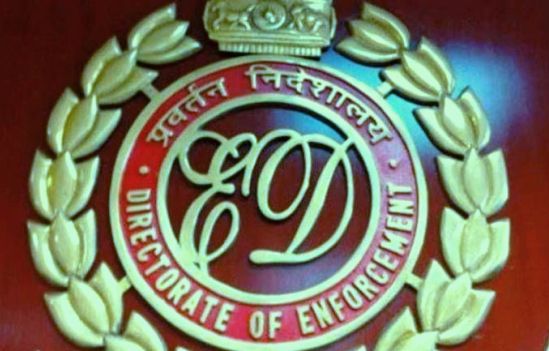Khushi Bajpai
Published on: September 6, 2022 at 20:31 IST
The Central government argued before the Supreme Court that the petitions opposing the extension of Sanjay Kumar Mishra’s term as Director of the Enforcement Directorate (ED) were politically motivated because the petitioners are members of political parties whose leaders are currently being investigated by the ED.
The petitioners, Jaya Thakur, Saket Gokhale, Randeep Singh Surjewala, and Mahua Moitra, are members of either the Trinamool Congress or the Congress party, whose top officials are under investigation by the ED, according to an affidavit submitted to the Supreme Court by the Centre.
The affidavit stated that “in most cases, the appropriate courts have either taken cognizance of the case or constitutional courts have refused to offer them any relief.”
At least 8 applications contesting the extension of Mishra’s tenure have been submitted by leaders of the Congress and TMC, among others.
The other petitioners are Manoharlal Sharma, Krishna Chander Singh, and Vineet Narain.
According to the petitioners, the top court’s September 2021 ruling against further extensions to Mishra’s tenure was violated by the Central government’s move to extend Mishra’s tenure.
In that decision, the Supreme Court upheld a prior ruling by the Central government on November 13, 2020, expanding Mishra’s appointment order’s tenure from two to three years and making retroactive revisions.
Mishra was initially chosen as the ED Director in November 2018 for a two-year term. In November 2020, the two-year tenure came to an end. He had reached the retirement age of 60 in May 2020.
On November 13, 2020, the Central Government, however, published an office order in which it was said that the President had modified the 2018 order, changing the time period from “two years” to “three years.”
The NGO, Common Cause, contested this before the Supreme Court.
The Central government has the authority to make retroactive adjustments, but they should only be made in the most exceptional of circumstances, according to a September 2021 ruling by a bench of Justices L Nageswara Rao and BR Gavai.
Additionally, the Court had ruled that Mishra’s tenure, which was about to end, could not be prolonged.
The Central Government introduced an Ordinance modifying the Central Vigilance Commission following the Supreme Court’s ruling from last year.
The Center supported the extension by claiming that it was necessary since the specialized work needed to be managed by a premier agency is an ongoing process and the person in charge of the organization should have a term of 2 to 5 years.
The Center argued that there is a clear political motivation for bringing this public interest lawsuit.
It was stated that the traditionalists had concealed the PILs in order to gain political advantage without even stating that the ED was currently looking into the party leaders.
The brief further contended that the top court has disapproved of this practice after observing the rising number of public interest litigation petitions filed in service matters.
The government also emphasized that the Central Vigilance Commission Act of 2003 and the Delhi Special Police Establishment Act of 1946, both of which have since become Acts, were amended by the CVC (Amendment) Ordinance of 2021 and the DSPE (Amendment) Ordinance of 2021, respectively, without changing any provisions pertaining to supervision of these agencies.
In fact, the two statutes now contain explicit enabling provisions with regard to the tenure.
The Central Government argued that, in order to maintain independence, it is reasonable to set a cap on the length of appointments like Director of CBI and ED.
“Therefore, in exceptional cases, on the proposal of the committee specified under the relevant statute, and for justifications to be documented in writing, their tenure may need to be extended beyond the initial terms. There is no restriction stating that a director’s tenure in office cannot be longer than two years.”
The affidavit emphasized the three requirements under Section 25(d) of the CVC Act for extending the tenure of the ED Director in order to demonstrate the point of independence:
- Recommendation by the committee constituted under Section 25(a),
- Extension in the public interest and
- Reasons for such an extension must be recorded in writing.
Additionally, it has been said that the Chief Vigilance Commissioner, who is chosen by the Prime Minister, Leader of the Opposition, and Home Minister, serves as the committee’s chair.
According to the affidavit, “The petitioner would only be persuaded that these agencies are impartial if these agencies were to ignore the crimes perpetrated by the top leaders of their political party.”
Senior Attorney KV Viswanathan was chosen by the Supreme Court earlier today to serve as an Amicus Curiae in the case.
On September 12, the subject will be heard in court.

